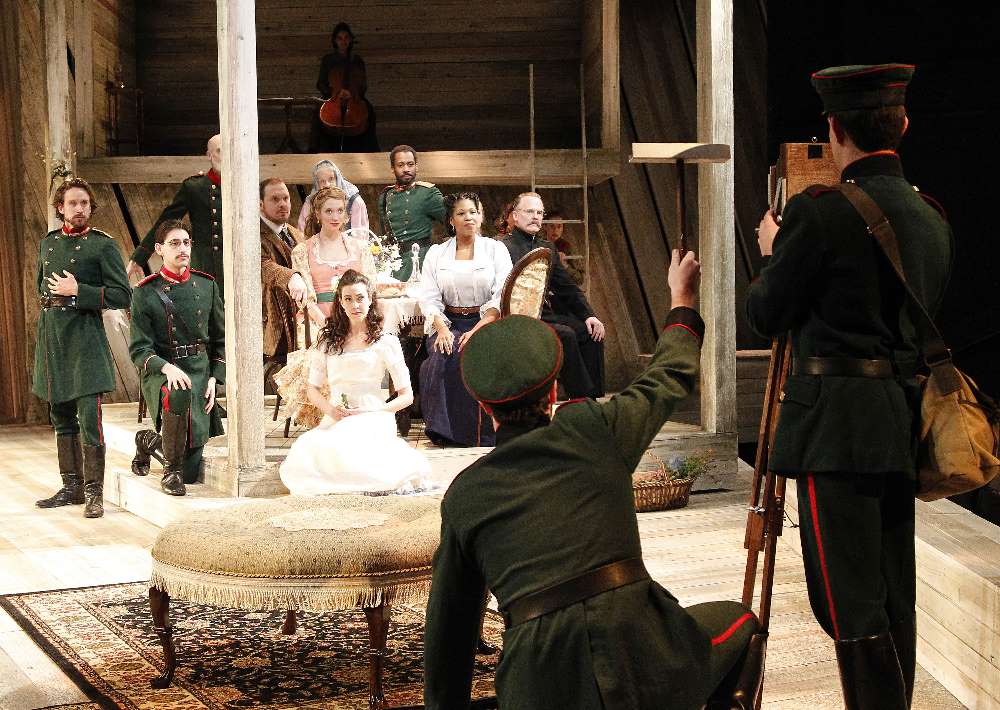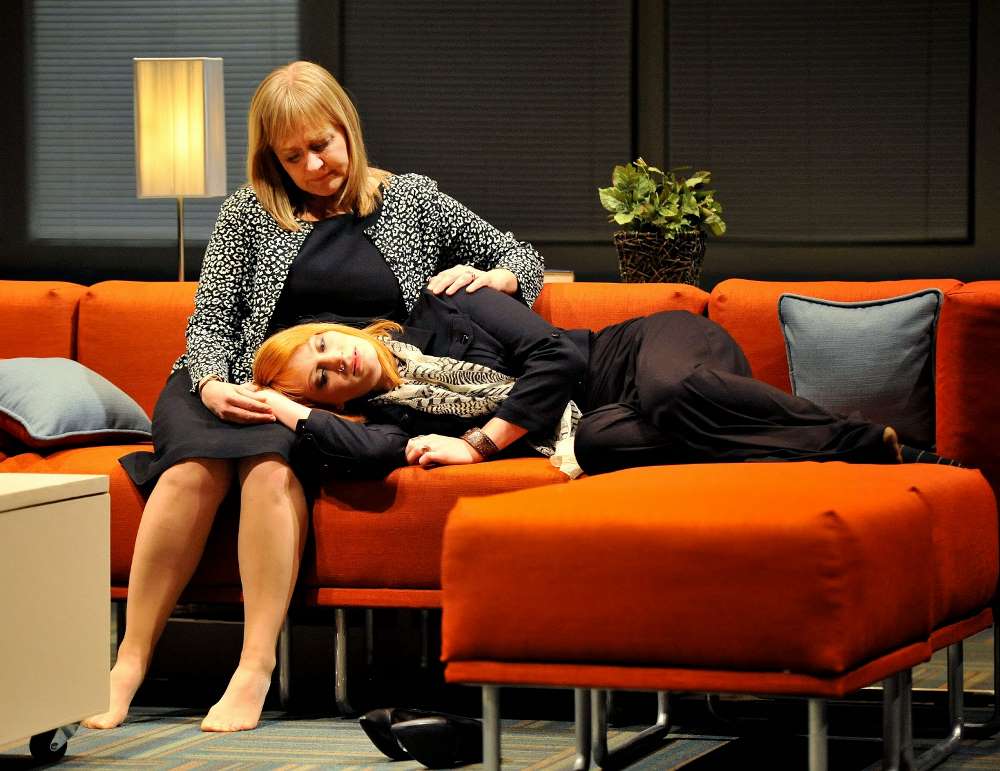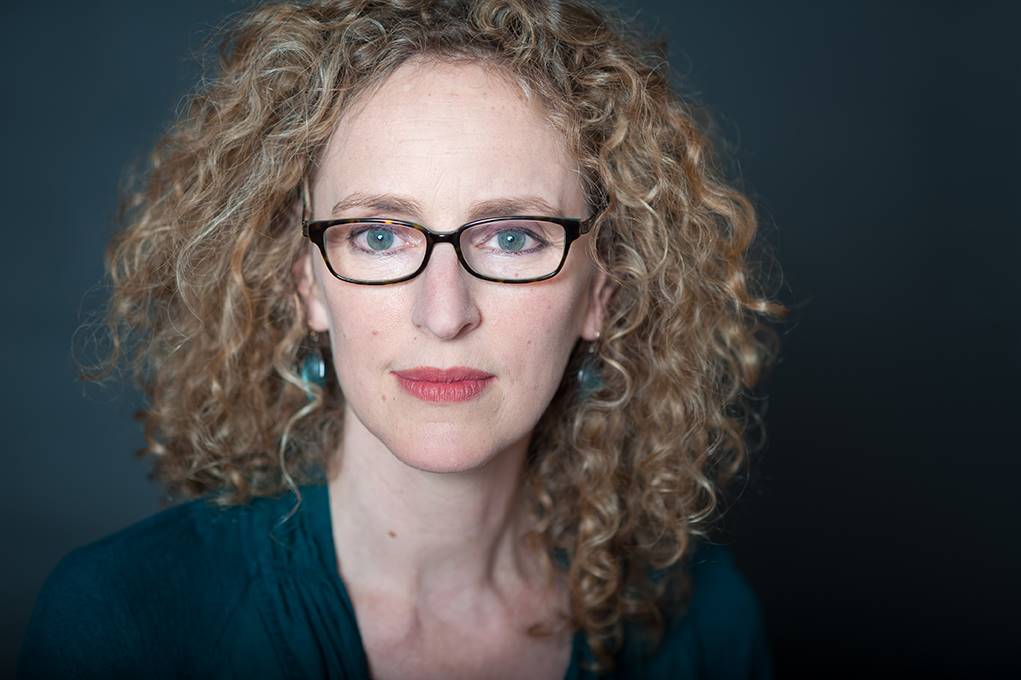CHAPEL HILL, N.C.: The sun is over a Tar Heel-blue sky in North Carolina. On the second floor of the Center for Dramatic Art on the University of North Carolina–Chapel Hill’s campus, director Vivienne Benesch scribbles notes on her notepad during a run-through of Chekhov’s Three Sisters. It is the final scene of the play, in which, after much turmoil, the titular characters face the inevitable unknown called the future. Benesch, along with everyone in the room, pauses, transfixed on the sisters. “If we only knew,” Olga, the eldest, says. The room stops, and with a smile Benesch takes a breath, nodding in glowing approval: the look of a gratified leader.
In January, Benesch succeeded artistic director Joseph Haj as producing artistic director of the 40-year-old PlayMakers Repertory Company; Haj recently moved north to Minneapolis to lead the Guthrie Theater. For her newest gig, Benesch brings a spirit of collaboration, a passion for education, and a keen understanding of how important a surrounding community is to the growth of a theatre company—a trait she mastered while artistic director of Chautauqua Theatre Company (CTC) in West New York.
An actor originally, Benesch received an MFA in acting from NYU, studied under resident theatre pioneer Zelda Fichandler, and acted professionally for many years. Her collaborators have included Dame Maggie Smith, Arthur Miller, Tony Kushner, and Charles Mee, and her credits include roles Broadway and at such resident theatres as the Guthrie and Hartford Stage. It was lifelong mentor Rebecca Guy who brought her to Chautauqua as a student. Over the years, Benesch returned to CTC as an actor and director, and then in 2005—when Guy retired from the position—took over as artistic director. Benesch has led the company for 11 seasons. While her first day at PlayMakers was Jan. 1, she will also continue at CTC for one more season to train her successor, Andrew Borba.
Splitting time between two theatres can be a daunting task, but Benesch is used to being busy. This month, her production of Libby Appel’s adaptation of Three Sisters includes a cast of veteran actors and UNC MFA candidates. Benesch’s treatment of the material exemplifies her ability to shed fresh light on the classics, something she also did at Chautauqua, as in the 2013 the experimental, multidisciplinary Romeo and Juliet Project.
She doesn’t confine herself to classics, though. For PlayMakers, Benesch has directed Sarah Ruhl’s In the Next Room (or the vibrator play), John Logan’s Red, and Deborah Salem Smith’s Love Alone.
She spoke to American Theatre recently over brunch about her plans for PlayMakers. The first subject that came up was new-play development.

In an article in INDY Week, you mentioned your interest in bringing new-play development to PlayMakers. What draws you toward new work?
I find it absolutely essential for actors in training. It demands a truly responsive skill set. Being both a collaborative voice in the room—helping a writer learn how their character behaves, speaks, interacts—but also being responsive to a writer’s shifts and changes and rewrites, and knowing how to make choices that may change within an hour let alone the next day…Nothing exercises the malleability and suppleness of an actor like that. Other than maybe Chekhov.
It also goes back to craft and training; when you’re doing a new play, you have your training to fall back on and use to make these choices.
When you’re workshopping a new play, you [as an actor] must make choices, and they must be big choices. The playwright can’t know what they have unless strong choices are made. Even if they are the wrong ones, sometimes it’s more helpful for playwrights in the early drafts to hear the wrong thing than no choice at all. PlayMakers has the great privilege and responsibility to be a hub for the classics, the best of the modern canon, and new work. It’s the conversation between all three that makes us a significant cultural institution and a home for an audience that spans the youngest to longtime theatregoers.
Every theatre in America is dealing with this issue in some way and asking the question: Where is our future audience coming from? And how do we get them in the door and keep them excited? It isn’t just by doing excellent work (though that’s certainly part of it). Most people don’t choose theatre as their [first choice] entertainment source anymore. New work, and the conversation that is happening in new work, can entice people with its subject matter, its form, or just the thrill of seeing and experiencing something truly original.
Joe Haj did such an amazing job over the past nine years here to raise the profile of the theatre and put diversity and community as central tenets. I feel like he planted the seeds and the bloom is about to open, and now I have to nurture it into its full flowering.
And engagement is everything in that. Bringing more diverse and unique voices into the company and sending our company voices out. What I am using as my guiding principle for choosing my first PlayMakers season [2016–17] is transformation—looking at plays that in some way deal with that, for a community or an individual. I felt that in a time of change—for me, for PlayMakers (celebrating its 40th anniversary), for the country—it made sense to observe and celebrate transformation.

It’s shocking how few female artistic directors there are in the country.
In terms of LORT theaters, I just learned that I’m No. 16!
At NYU, you studied with Zelda Fichandler. Was she a beacon of what was possible?
Yes. I have been exceptionally lucky to have a lot of female mentors. My lifelong mentor is Rebecca Guy, my high school acting teacher, who turned me to directing. She had been a Juilliard actor who came to directing and teaching later, and she is responsible for propelling me through every stage of my career to date. Both Rebecca and Zelda, for very different reasons, had an enormous impact on me.
In terms of Zelda, she spoke of art and training as learning about expanding possibility. She famously said, “You are not here to refine the three or four things you’ll be employed for for the rest of your career; you are here to explore the thousand possibilities of who you are.” She was a pioneer of the regional theatre movement, and I am now looking to find what my part is in the trajectory of the next wave of that movement.
In our first year of grad school we did these projects called “universe projects”; we had to present to the class our personal universe. It could be anything. People read from journals, they sang, one guy put on a straw skirt and did a hula number. For me, I remember I sat in front of a big mirror—in Room 525—and faced the mirror sitting at a dressing table. Everyone was behind me watching. I had this whole conversation through the mirror, because one of the things that I knew about my life at that point was that I had spent so much of it watching myself watching you watching me. And my hope, in my time [at NYU], was to turn around and be fully present.
Today, as an artistic director, my job is to watch in all directions—to be an artist and a mirror. To see through my audience’s lens and my own. To be a community leader and a great teacher. To administrate and administer. But most importantly, to be present.
Jackson Cooper is a freelance writer and a critic for Classical Voice of North Carolina and the Greensboro News and Record.


